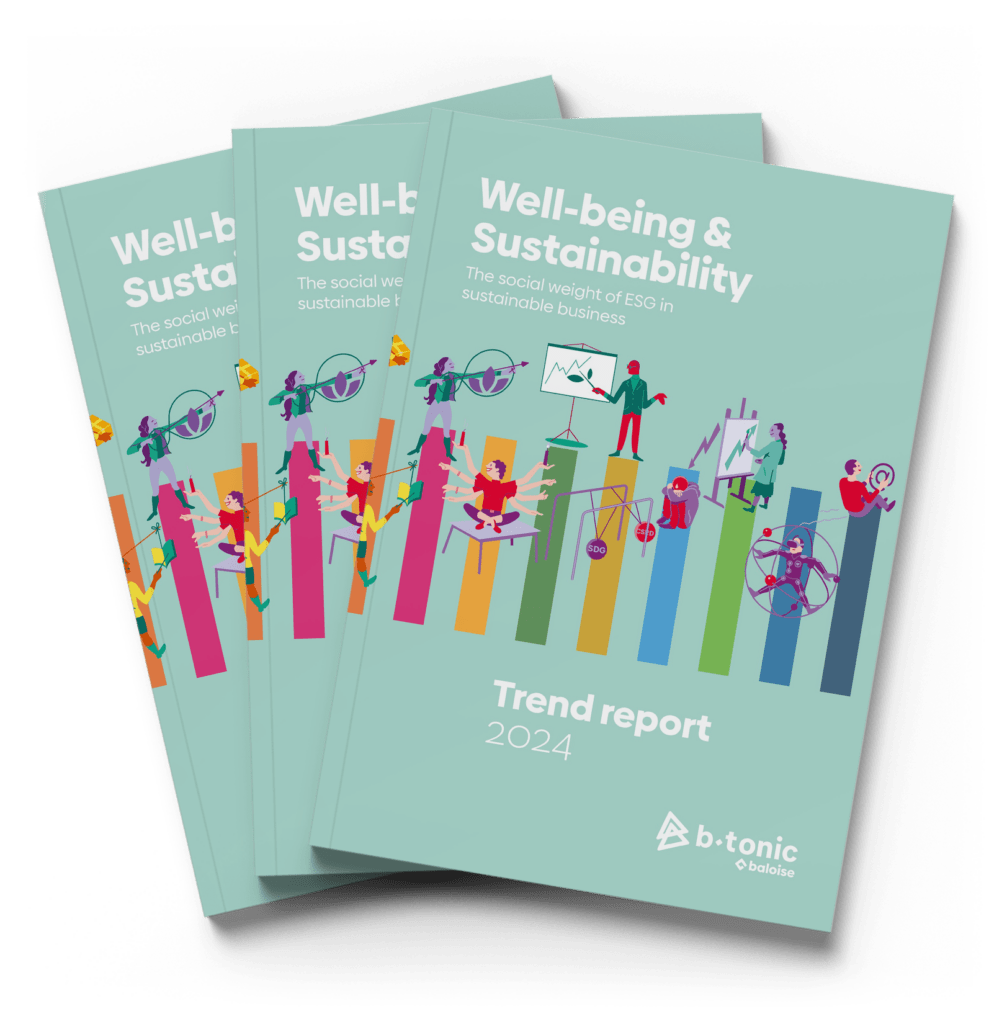Home » People sustainability » People Sustainability: put the employees at the centre
People Sustainability: put the employees at the centre
The gap between human, economy and environment into perspective
Content:
The health crisis was a turning point for the way we look at our employees' well-being
Today, more and more organisations base their policy upon the ESG criteria. They try to reinvent and improve themselves in a corporate world where social and environmental needs are more and more prioritised and where sustainability has become the key to company transformation.
In the past few years it has become clearer and clearer that sustainability is no isolated element or ambition, but is part of a complex responsibility that is created in a company’s DNA. So:
- Sustainability should be the starting point of KPIs, the working conditions and the investment strategies.
- The ESG or SDG norms are a good starting point and compass for engagement.
- However, the long-term efficiency is determined by the daily actions and efforts, based upon a systematic well-being policy.
Investing in people sustainability pays off
Research shows that employees of organisations that focus on people sustainability have a higher job satisfaction, are more productive, leave their job less often and are more capable of achieving their career goals. And 86 percent of organisations around the globe agrees or strongly agrees that their ecological or economic results were improved after an investment in people sustainability. If your employees are well-supported, you see its impact in your business.
Even now organisations are dealing with shrinking budgets and rising inflation, the most important thing is employee commitment. Especially in the current uncertain times, having an eye for the employee well-being generates great benefits related to productivity, collaboration and motivation.
Recent research by SAP confirms that more than 86% of managers thinks that investing in people sustainability can lead to positive economic and ecological sustainability results. A McKinsey report indicates that 83% of C-suite leaders expect ESG programmes will contribute more to shareholder value in five years than they do now. By putting humans at the centre in the business strategy, innovation, resilience and collaboration are improved and the performance and progress accellerate.
Four types of well-being
A well-being policy with impact should focus on four dimensions: mental and emotional well-being (insight in yourself, coping with stress and adversity, agility), physical well-being (insight in your health), social well-being (staying in tocuh with colleagues, friends, family, society) and financial well-being (having your money matters under control and coping with financial challenges).
There is no point in focusing on those first three without the fourth. Through the covid pandemic and the energy crisis we learnt that financial well-being is crucial. You can have one hundred and one initiatives: if people worry about not being able to pay their bills, nothing works. You can read all about it in our trend report: b-tonic.be
To help employees make the right financial choices, Baloise developed an online platform: gonna.be. You can, for instance, simulate what will happen to your income when you fall absent due to illness.



